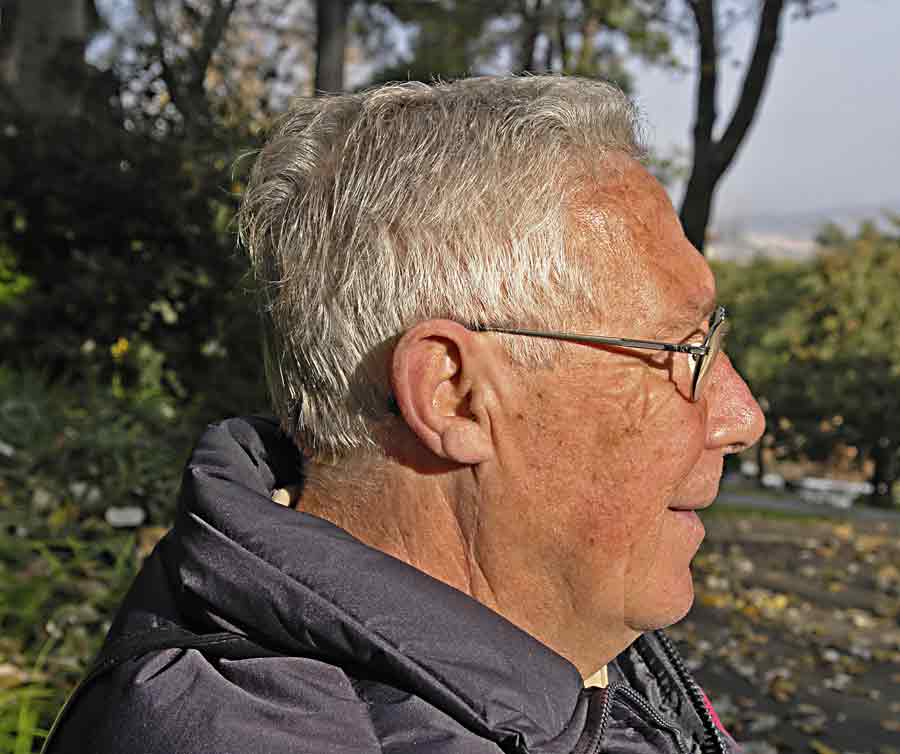Gene-targeted drug against prostate cancer
Gene-targeted drug against prostate cancer
30 Oct 2015A pioneering drug developed to treat women with inherited cancers can also benefit men with advanced prostate cancer, a major new clinical trial concludes.
The trial is a milestone in cancer treatment as the first to show the benefits of ‘precision medicine’ in prostate cancer – with treatment matched to the particular genetic characteristics of a man’s tumor.
Olaparib, the world’s first drug to reach the market targeted against inherited cancer mutations, was found to benefit as many as a third of patients with prostate cancer, including many who did not inherit cancer genes but whose tumors had acquired defects in DNA repair.
“Olaparib stopped prostate cancer growth”
In the trial, called TOPARP-A, 49 men with treatment-resistant, advanced prostate cancer received olaparib, and 16 of them (33%) responded, as defined by a set of clinical criteria.
Olaparib stopped prostate cancer growth, generating lasting falls in prostate specific antigen (PSA) levels, falls in circulating tumor cell counts in the blood, and radiological responses on CT scans and MRI. In particular, the clinical trial revealed that:
- Up to 30% men with advanced prostate cancer had tumors with defects in their systems for repairing DNA detected by genomic testing and that these responded particularly well to olaparib.
- Of the 16 patients with detectable DNA repair mutations, 14 responded very well to olaparib, accounting for the large majority of those who benefited from the drug.
- Most of these men, who all had terminal prostate cancer with limited treatment options, had disease control lasting much longer than expected in this group of patients.
The results have led on to the start of TOPARP-B, a second part of this trial in which only men whose prostate cancers have detectable DNA repair mutations will receive olaparib. If the results are successful, olaparib could become a standard treatment option for men with advanced prostate cancer and DNA repair mutations.

“Olaparib is highly effective against prostate cancer”
Trial chief investigator Professor Johann de Bono, Head of Drug Development at The Institute of Cancer Research, London, and The Royal Marsden NHS Foundation Trust, said: “Our trial marks a significant step forward in the treatment of prostate cancer, showing that olaparib is highly effective at treating men with DNA repair defects in their tumors. It also proves the principle that we can detect prostate cancers with specific targetable mutations using genomic sequencing to deliver more precise cancer care by matching treatment to those men most likely to benefit.”
“This trial is exciting because it could offer a new way to treat prostate cancer by targeting genetic mistakes in cancers that have spread. The hope is that this approach could help save many more lives in the future” said Dr. Aine McCarthy, science information officer at Cancer Research UK.
The genetic risk of metastatic prostate cancer: similar to BRCA mutations
Olaparib, which is now owned by AstraZeneca, has had particularly strong results in phase 3 trials in patients who inherited mutations to the BRCA genes, many of whom had breast or ovarian cancer. The drug, a type of treatment called a PARP inhibitor, was licensed last year for women with ovarian cancer and inherited BRCA mutations, but so far has not been approved for use on the NHS by NICE or the Cancer Drugs Fund.
Dr. William Nelson, co-vice chair of the SU2C Scientific Advisory Committee and director of the Sidney Kimmel Comprehensive Cancer Center at Johns Hopkins in Baltimore, Maryland, said: “Understanding the link between prostate cancer and DNA repair mutations is incredibly important for patients and their families. We can identify prostate cancer patients who will benefit from drugs like olaparib and also help men and their families better understand their genetic risk of metastatic prostate cancer, just as women with BRCA mutations do for breast and ovarian cancer.”
Source: eCancer News